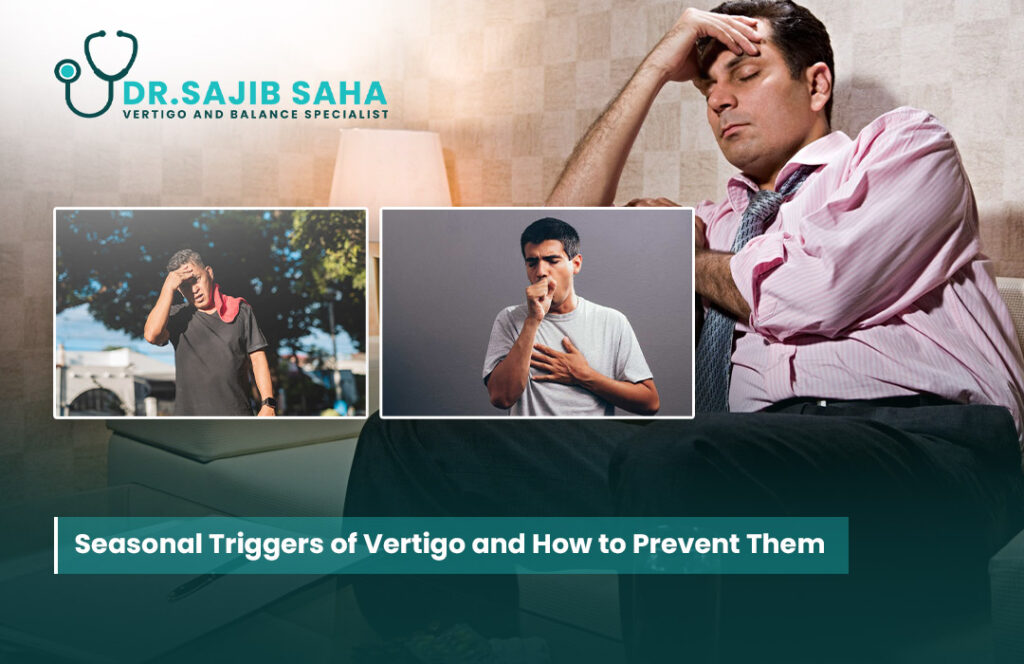Vertigo is a common balance disorder where a person feels as if the surroundings are spinning. While it can occur anytime, many patients notice their symptoms worsen during certain seasons. Weather fluctuations, allergies, humidity, and temperature changes often act as seasonal triggers of vertigo. In this blog, we will explore these triggers in detail and share practical prevention tips.
Common Seasonal Triggers of Vertigo
1. Weather Changes
-
Sudden changes in air pressure during seasonal shifts can disturb the inner ear’s balance system.
-
High humidity or extreme dryness may also increase dizziness.
2. Seasonal Allergies
-
Pollen, dust, and mold are more common in spring and monsoon seasons.
-
Allergic reactions can block the Eustachian tube, causing fluid buildup in the inner ear, which often triggers vertigo.
3. Cold and Flu Season
-
Winter colds, sinus infections, and viral illnesses can lead to ear congestion.
-
This directly affects the vestibular system, increasing vertigo attacks.
4. Heat and Dehydration in Summer
-
Excessive sweating and inadequate fluid intake may cause dehydration.
-
Dehydration reduces blood flow to the brain and inner ear, worsening dizziness.
5. Lifestyle Changes with Seasons
-
Reduced outdoor activity in winter or increased exposure to allergens in summer can indirectly worsen vertigo.
How to Prevent Seasonal Vertigo
1. Manage Allergies
-
Use prescribed anti-allergy medicines.
-
Keep windows closed during high pollen days.
-
Clean indoor spaces to reduce dust and mold.
2. Stay Hydrated
-
Drink enough water, especially during hot weather.
-
Include fruits and vegetables with high water content in your diet.
3. Protect Against Weather Fluctuations
-
Dress appropriately to avoid sudden temperature shocks.
-
Use a humidifier in dry winters and dehumidifiers in damp monsoons.
4. Boost Your Immunity
-
Maintain a balanced diet rich in vitamins and minerals.
-
Regular exercise and adequate sleep strengthen your body against seasonal illnesses.
5. Monitor and Treat Ear Infections
-
Seek medical advice if you have frequent ear blockages or sinus issues.
-
Early treatment can prevent worsening of vertigo.
When to See a Specialist
If you notice vertigo symptoms becoming more frequent or severe with seasonal changes, it’s important to consult a doctor. An ENT or vertigo specialist like Dr. Sajib Saha can identify the exact cause and provide the right treatment, including vestibular therapy, medication, or lifestyle guidance.
Conclusion
Seasonal changes can significantly impact vertigo symptoms, but with the right prevention strategies, patients can reduce the risk of attacks. By staying aware of triggers like weather, allergies, and dehydration, you can better protect your balance and quality of life.
👉 For expert consultation and personalized treatment, book an appointment with Dr. Sajib Saha, one of the leading vertigo specialists in Bangladesh.
